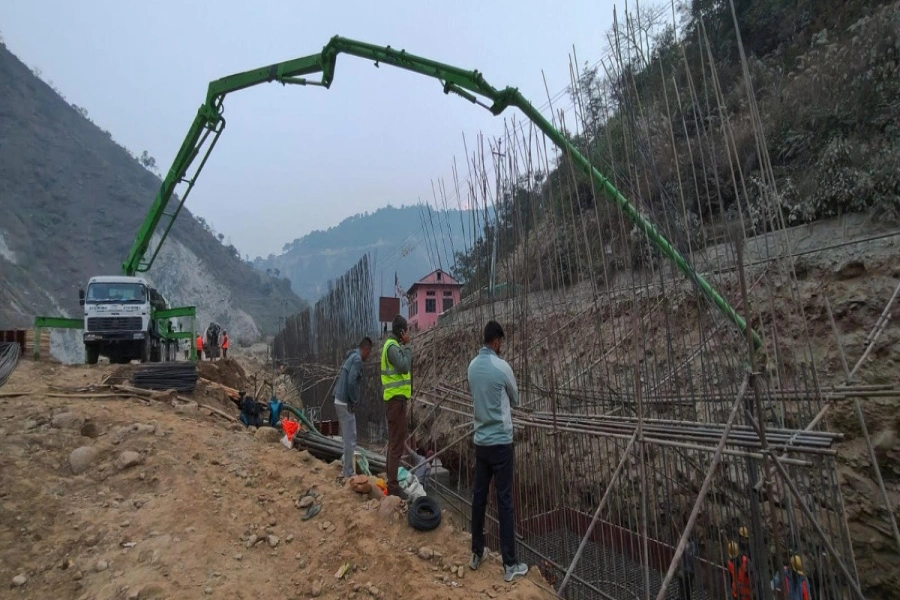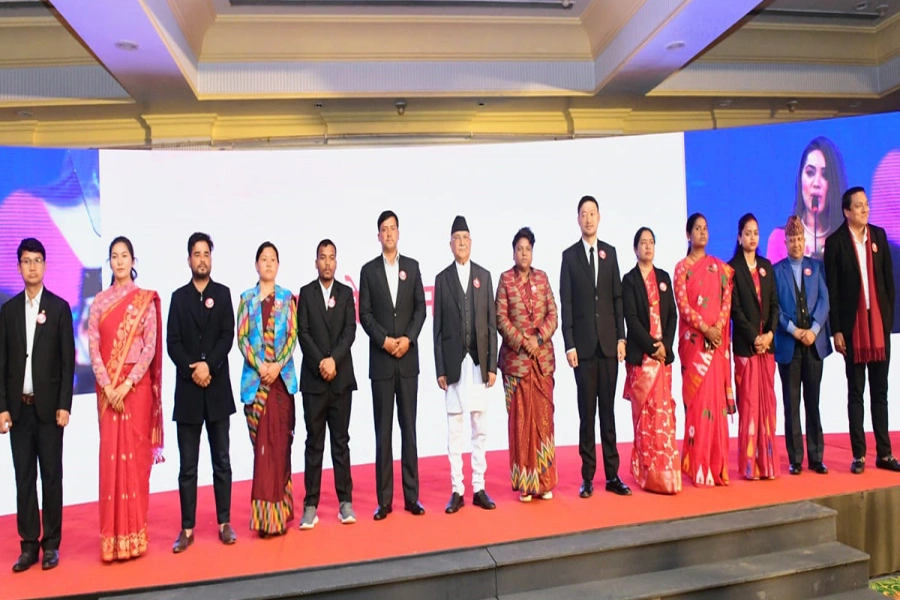Proposes May 15 as date for first-phase local elections
KATHMANDU, Feb 6: In response to the government's letter, the Election Commission (EC) on Sunday urged the government to fix the poll date and provide the report of the Local Level Restructuring Commission (LLRC) without further delay if the elections are to be held in May-June.
The election body's response comes three days after the government asked it to begin preparations for local elections. The government had asked the EC to do so without fixing the poll date and providing the LLRC report which is critical for setting up polling stations. The EC has also asked the government to release the budget for arranging the logistics. The election body expects it will require at least Rs 5 billion for conducting the local elections, apart from security expenditures.
Govt prepares to send ‘LLRC report’ back to commission

A board meeting of the EC has concluded that preparations cannot be expedited as expected without a poll date and the LLRC report. "We thank the government for its decision to go ahead with local elections. But it is difficult to arrange the logistics, human resource and other basic infrastructures on the ground without a poll date and the LLRC report," Chief Election Commissioner Ayodhee Prasad Yadav told Republica after the meeting.
In its letter to the government, the EC, which plans to conduct the election in two phases, said it will require an interval of at least 15 days to prepare for the next-phase poll. Calculating days required for poll preparations, the commission has proposed May 15 as the date for the first-phase local election and June 3 for the second phase.
The election body believes it cannot arrange the logistics and human resources without a poll date while the LLRC report is essential for arranging the ballot papers and setting up polling stations at the local level. The government had written to the EC to make its preparations even after failing to forge any consensus on the LLRC report or fix a poll date.
As part of its preparations, the EC has already began voter roll updating across the country and has asked the parties to furnish details on poll participation. These tasks are expected to come to an end by next week.
Without the LLRC report, however, the election body is in a fix over finalizing the polling stations, the deployment of human resources, logistical arrangement and other matters.
The LLRC report that was submitted to the government by the commission has now been sent back to it following reservations expressed by the Madhes-centric parties. The Madhes-based parties have been demanding delineation of local bodies on the basis of population alone, and the government has formed a taskforce headed by Minister for Federal Affairs and Local Development Hit Raj Pandey to address their concerns.
The EC also summoned top leaders of the major parties to EC headquarters on Tuesday to discuss poll preparations and the challenges ahead.
The government is under pressure to conduct three sets of elections-local, provincial and central-by January 2018 as per the provisions set out in the new constitution.
If the EC misses the summer window for holding local elections, political circles fear the constitutional requirement of holding three sets of elections by January 2018 may not be met. Nepal's climatic conditions offer two windows for elections-spring and autumn. The first election needs to be completed before mid-June if the two remaining elections are to be held before the constitutional deadline.
Election officials believe managing the local elections will be relatively difficult as these will be taking place after a gap of nearly two decades. They are also worried whether the ballot papers can be printed by the Janak Siksha Samagri Kendra. Currently, 110 political parties are registered with the EC and election officials believe the ballot paper could be over three feet long even if only 50 parties participate in the elections.



































